Filter News
Area of Research
News Topics
- (-) Critical Materials (9)
- (-) National Security (5)
- 3-D Printing/Advanced Manufacturing (78)
- Advanced Reactors (6)
- Artificial Intelligence (8)
- Big Data (5)
- Bioenergy (26)
- Biology (11)
- Biomedical (6)
- Biotechnology (4)
- Buildings (36)
- Chemical Sciences (14)
- Clean Water (8)
- Climate Change (21)
- Composites (17)
- Computer Science (25)
- Coronavirus (12)
- Cybersecurity (8)
- Decarbonization (33)
- Energy Storage (72)
- Environment (54)
- Exascale Computing (2)
- Fossil Energy (2)
- Frontier (2)
- Fusion (1)
- Grid (40)
- High-Performance Computing (6)
- Hydropower (2)
- Isotopes (1)
- Machine Learning (7)
- Materials (35)
- Materials Science (26)
- Mathematics (2)
- Mercury (3)
- Microelectronics (1)
- Microscopy (8)
- Molten Salt (1)
- Nanotechnology (8)
- Net Zero (3)
- Neutron Science (11)
- Nuclear Energy (7)
- Partnerships (12)
- Physics (1)
- Polymers (11)
- Quantum Science (2)
- Renewable Energy (1)
- Security (6)
- Simulation (4)
- Space Exploration (3)
- Statistics (1)
- Summit (4)
- Sustainable Energy (69)
- Transformational Challenge Reactor (3)
- Transportation (65)
Media Contacts
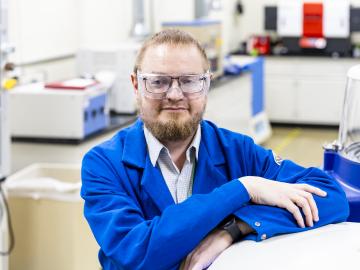
It would be a challenge for any scientist to match Alexey Serov’s rate of inventions related to green hydrogen fuel. But this researcher at ORNL has 84 patents with at least 35 more under review, so his electrifying pace is unlikely to slow down any time soon.
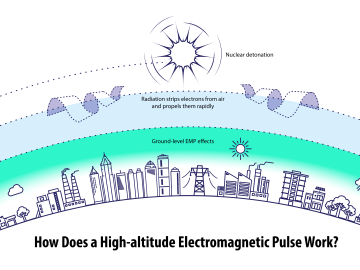
Researchers at ORNL have been leading a project to understand how a high-altitude electromagnetic pulse, or EMP, could threaten power plants.
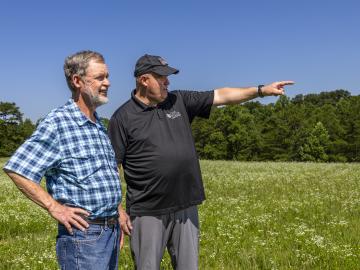
Carl Dukes’ career as an adept communicator got off to a slow start: He was about 5 years old when he spoke for the first time. “I’ve been making up for lost time ever since,” joked Dukes, a technical professional at the Department of Energy’s Oak Ridge National Laboratory.
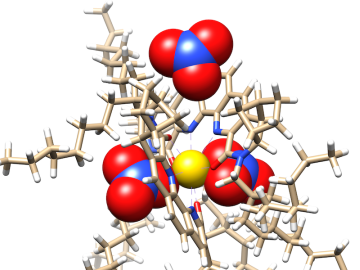
Researchers at ORNL zoomed in on molecules designed to recover critical materials via liquid-liquid extraction — a method used by industry to separate chemically similar elements.
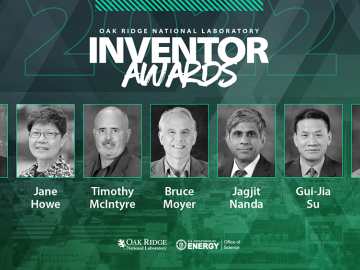
Seven scientists at the Department of Energy’s Oak Ridge National Laboratory have been named Battelle Distinguished Inventors, in recognition of their obtaining 14 or more patents during their careers at the lab.
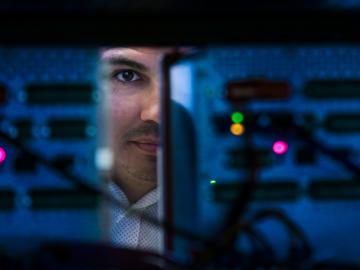
Although blockchain is best known for securing digital currency payments, researchers at the Department of Energy’s Oak Ridge National Laboratory are using it to track a different kind of exchange: It’s the first time blockchain has ever been used to validate communication among devices on the electric grid.
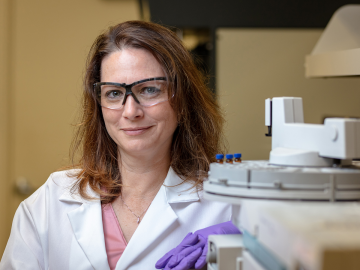
Laboratory Director Thomas Zacharia presented five Director’s Awards during Saturday night's annual Awards Night event hosted by UT-Battelle, which manages ORNL for the Department of Energy.
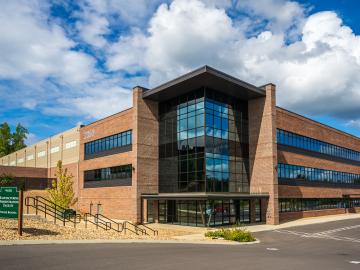
ORNL scientists will present new technologies available for licensing during the annual Technology Innovation Showcase. The event is 9 a.m. to 3 p.m. Thursday, June 16, at the Manufacturing Demonstration Facility at ORNL’s Hardin Valley campus.
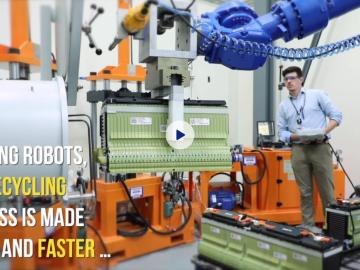
Researchers at ORNL have developed a robotic disassembly system for spent electric vehicle battery packs to safely and efficiently recycle and reuse critical materials while reducing toxic waste.
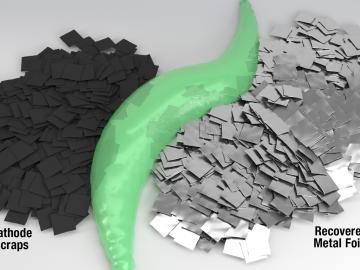
Scientists at Oak Ridge National Laboratory have developed a solvent that results in a more environmentally friendly process to recover valuable materials from used lithium-ion batteries, supports a stable domestic supply chain for new batteries




